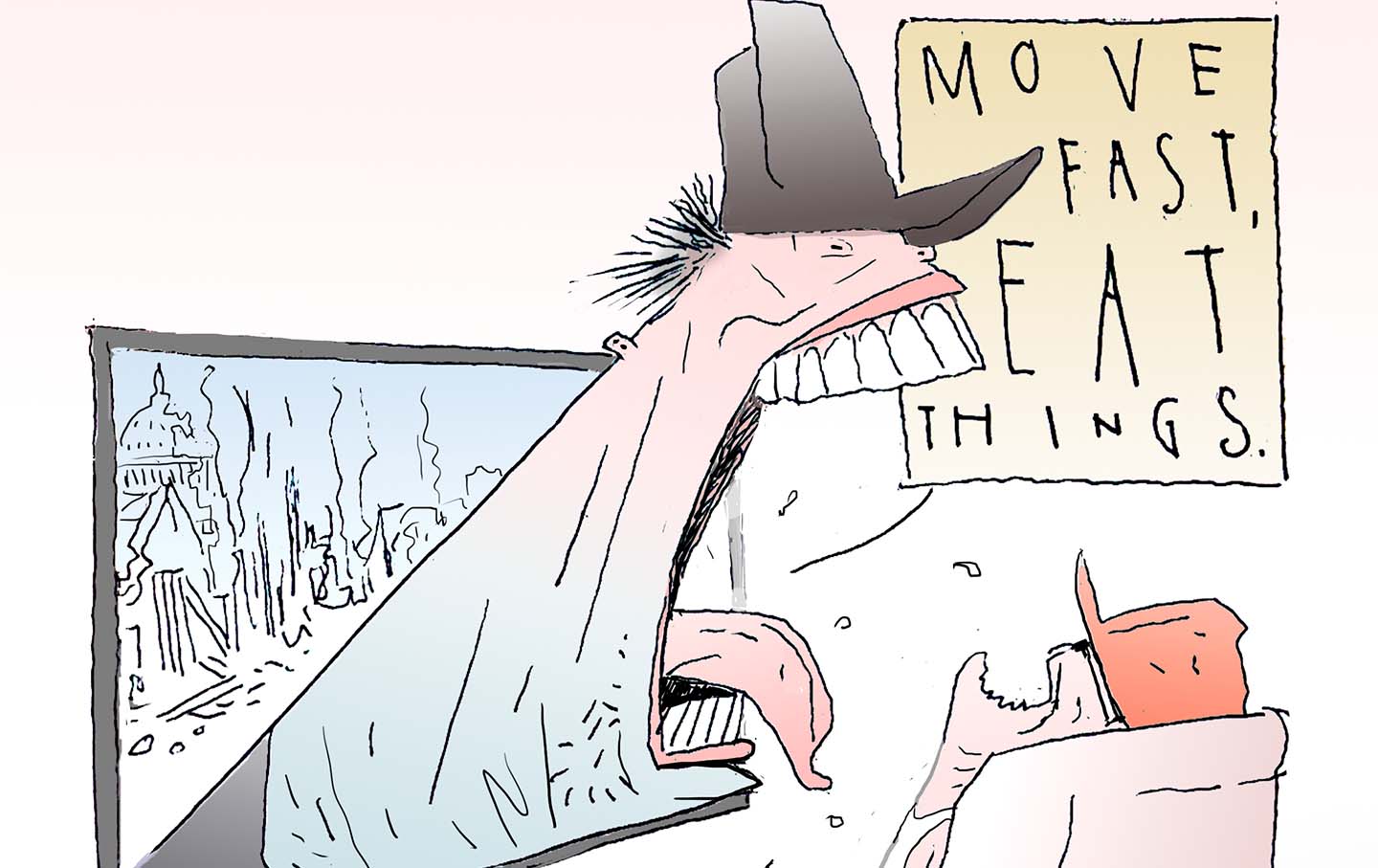The Kamala Harris Stan Wars Have Reached a Fever Pitch
The election has turned the Internet into a dangerous battlefield—and nobody, not even a pop superstar, is safe.
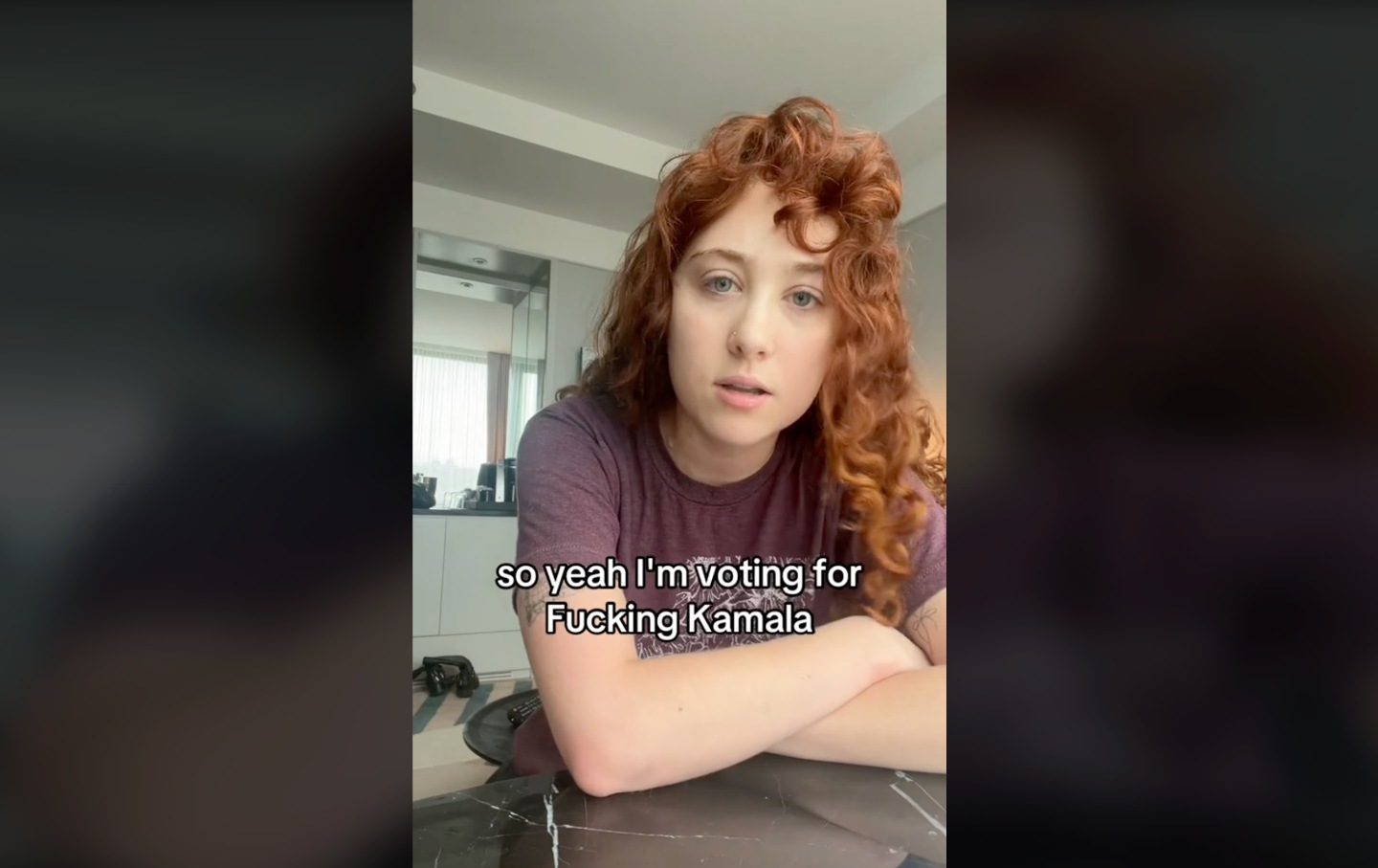
Chappell Roan responds to fans criticizing her comments about the Kamala Harris campaign.
(TikTok)For the past decade or so, Donald Trump and his surrogates, both off and online, have had a lock on creating superfans, with Democrats, and even Trump’s fellow Republicans, struggling to keep up. Senator Bernie Sanders has come the closest to cultivating a cult following on the Democratic side, but that wasn’t enough for him to win the presidential nomination in either 2016 or 2020. Hillary Clinton’s attempts to relate to a younger, online demographic inspired more mockery than “Pokémon Go[ing] to the polls.” President Joe Biden’s “Dark Brandon” meme didn’t do much to boost his candidacy either.
Compared to her predecessors, Vice President Kamala Harris has made substantial inroads with the young, online, and restless. She’s younger, fluent in pop culture, knows how to order baked goods like a normal human, and doesn’t waffle on abortion. Most importantly, she’s certified brat! Of course, the Harris-Walz campaign has not been without criticism. But they’re heavily armored with backing from pop culture heavyweights like Taylor Swift and Beyoncé. Supportive influencers are more than happy to fill any gaps in the vice president’s chainmail.
Harris has long been able to count on fervent online support; during her doomed 2020 presidential run, the KHive, as her stans are known, became notorious for the depths they would go to for their icon.
“Something that Harris has had from very early on in 2019 when she announced her run for president back then, was this really fierce online support from a group of supporters,” Annie Wu Henry, a campaign manager who has served as a digital consultant for several high-profile progressive campaigns but is not working directly with the Harris campaign, told The Nation. “That can be really powerful because they will do a lot of the defending and fighting for you.”
In proper stan war fashion, fight the KHive has. And, with time running out and the stakes sky-high, nobody is safe from the crossfire—not even burgeoning pop superstars like Chappell Roan.
In September, Roan announced in a Guardian article, “I have so many issues with our government in every way.… So I don’t feel pressured to endorse someone. There’s problems on both sides.” This stance shouldn’t have been surprising given the singer’s public refusal to attend this year’s White House Pride event because of the Biden administration’s backing of the genocide in Gaza.
The backlash from the KHive was swift and vitriolic, with Harris supporters questioning the pop star’s commitment to the queer community, calling her an idiot, and generally reveling in the public takedown. Prominent Democratic influencers like Olivia Julianna, who spoke at this year’s DNC, proclaimed themselves upset that “Chappell Roan said both sides are the same.” Though Roan never said the Democratic and Republican parties are the same, any insistence that both have issues triggers memories of the both-sides-ing during the 2016 election for many diehard Dems. (Roan later clarified that she would be “voting for fucking Kamala,” though she declined to endorse Harris.)
Trauma from a disastrously handled 2016 election has proven to be a powerful motivator for Harris supporters to quickly dismantle dissenters. One influencer, who has been a staunch supporter of Harris but wouldn’t consider themself a stan due to the fanaticism often associated with the word, told The Nation, “A lot of [the defense of Harris] is PTSD from 2016 because there was so much misinformation being put out from both the right and the left toward Hillary Clinton.”
“We can’t just let other people define the narrative and not push back on this information,” the pro-Harris influencer, who asked to be kept anonymous due to their fear of online backlash, added. “We have to cut it off at the head and really jump in and correct it before it spreads.”
David Karpf, a professor at George Washington University’s School of Media and Public Affairs and author of Analytic Activism: Digital Listening and the New Political Strategy, is sympathetic toward anxious Democratic voters. The stakes are objectively high, but Karpf emphasizes that historically, a meaningful number of minds are not usually swayed weeks out from election day.
He recommends that nervous voters continue to mobilize online, but “give each other just a little bit of a break” instead of burning each other out with fighting. “The actual high stakes stuff happens [on Election Day],” he told The Nation.
For Kenneth Walden, a self-proclaimed KHive member who was one of the influencers invited to attend the DNC this year, the time to correct perceived attacks on Harris is now. Roan’s TikTok video questioning the Democratic Party’s record on trans rights proved particularly disturbing to the content creator. In an insult-laced video addressing Roan’s disappointment with Democrats, Walden insisted she is simply an uninformed pop star who hasn’t done anything for the LGBTQIA+ community—even though uplifting queer people has been a central part of Roan’s artistry.
Roan’s misgivings about the Democrats’ commitment to improving the lives of queer people are also not entirely unfounded. While Democrats have generally been an important stopgap between trans people and an overwhelming wave of anti-queer policies, in the past few years alone, there has been clear room for improvement. In 2023, Biden riled LGBTQIA+ advocates when his administration carved out exceptions in their proposed change to Title IX that left room for schools to ban some trans athletes from competing in sports. In Pennsylvania, where Democrats control the state House and the governorship, anti-LGBTQIA+ policies continue to disrupt trans people’s lives. Even some 2024 Democratic campaigns are validating Roan’s concerns; for instance, a recent ad from Texas Senate candidate Colin Allred parroted the anti-trans dog whistles used to stoke discrimination against transgender athletes.
The interactions the Harris fans are having on the Internet may play well with the already converted, but for the skeptics, as comedian Vinny Thomas put it, “You guys are not changing any minds, u are just scaring the hoes.” In the days following the attacks on Roan, “Blue MAGA,” a pejorative used to describe cultish tendencies among some “vote blue no matter who” Democrats, began trending. One Twitter user wrote, “I had been leaning towards voting for Kamala while holding my nose out of fear for my daughters [sic] bodily autonomy… but wow blue MAGA is really making me not want to do even that.”
Not every young person on social media is completely put off by the KHive. TikTokker Christian Divyne doesn’t believe Blue MAGA is a fair descriptor for understandably panicked Democrats. Regardless of KHive rhetoric, the chances of thousands of neon green-clad youths storming the Capitol are low. However, Divyne told The Nation, that doesn’t absolve influencers of their responsibility to “hold the weight of their platform, understand what that means and use it effectively”—without making lukewarm voters feel their concerns are unimportant or that they are “dumb.”
Popular
“swipe left below to view more authors”Swipe →Some disaffected Gen Z voters have seen the KHive’s anger playing out online and still feel unmoved. Kathryn LaMontagne, a law student and environmental activist, told The Nation that if the Harris campaign wants to win over young progressives, “they’ll do something with some action involved, and not just memes and having influencers argue with other people on the Internet about endorsing Kamala.”
Another young voter, who plans to vote downballot even if she doesn’t vote for Harris, told The Nation that a Chappell Roan endorsement of the vice president wouldn’t change her stance despite her affinity for the singer. “The biggest thing holding me back is the Harris-Walz position on Israel and Palestine,” the voter, who asked to be kept anonymous to avoid online vitriol, said. She added that Roan’s expression of feeling morally conflicted about Harris but voting for her anyway felt more inspiring than the online outreach from influencers she perceives as viewing the Harris-Walz campaign through “rose-colored glasses.”
Maggie McDonald, a professor of political science at the University of Kentucky who researches social media and politics, was not surprised by Roan’s thoughts on the election. She’s seen a similar civic malaise among many of her students. “For their sense of self-preservation in the short term, they want to not engage with what they see as just negative back and forth content, difficult to find information or overwhelming amounts of information,” she told The Nation.
As cathartic as it is to snark at perceived stupidity on the Internet, Harris influencers may need to decide whether they want to be agreed with or effective, especially since vocal youth support for Harris won’t necessarily translate to a vote for her. McDonald says arming young people with information on how to register and vote is a more effective way to motivate them to take action on election day.
“In reality, there are very few people, especially among young people, who are truly up for grabs and are willing to vote,” McDonald said. “The people who are able to be fired up are probably already fired up…for a lot of voters, particularly young voters, the decision is, do I stay home or do I vote?”
In their book Making Young Voters: Converting Civic Attitudes into Civic Action, John B. Holbein and D. Sunshine Hillygus found that the United States has one of the worst rates of youth voter turnout in the world. In the US, young voter turnout in 2020 was about 57 percent compared to a 74 percent turnout from voters over 64. A 2023 Harvard study indicates that young Americans could continue the trend by voting less in 2024 than in 2020. At this stage, McDonald says a candidate’s best-case scenario is converting a young American who is 0 percent likely to vote into a non-zero.
With less than two weeks until Election Day, opportunities to create Harris superbelievers are fading fast. Divyne, who was not propelled closer to voting for Harris because of influencer outreach, isn’t compelled to drill into his followers who to vote for. Instead, he has prioritized stressing that voting isn’t a waste of time. “The Electoral College system is so wacky, but on a smaller scale, everything else you vote for is a one-to-one issue. Your vote really matters for all these things, and that needs to be stated.”
More from The Nation
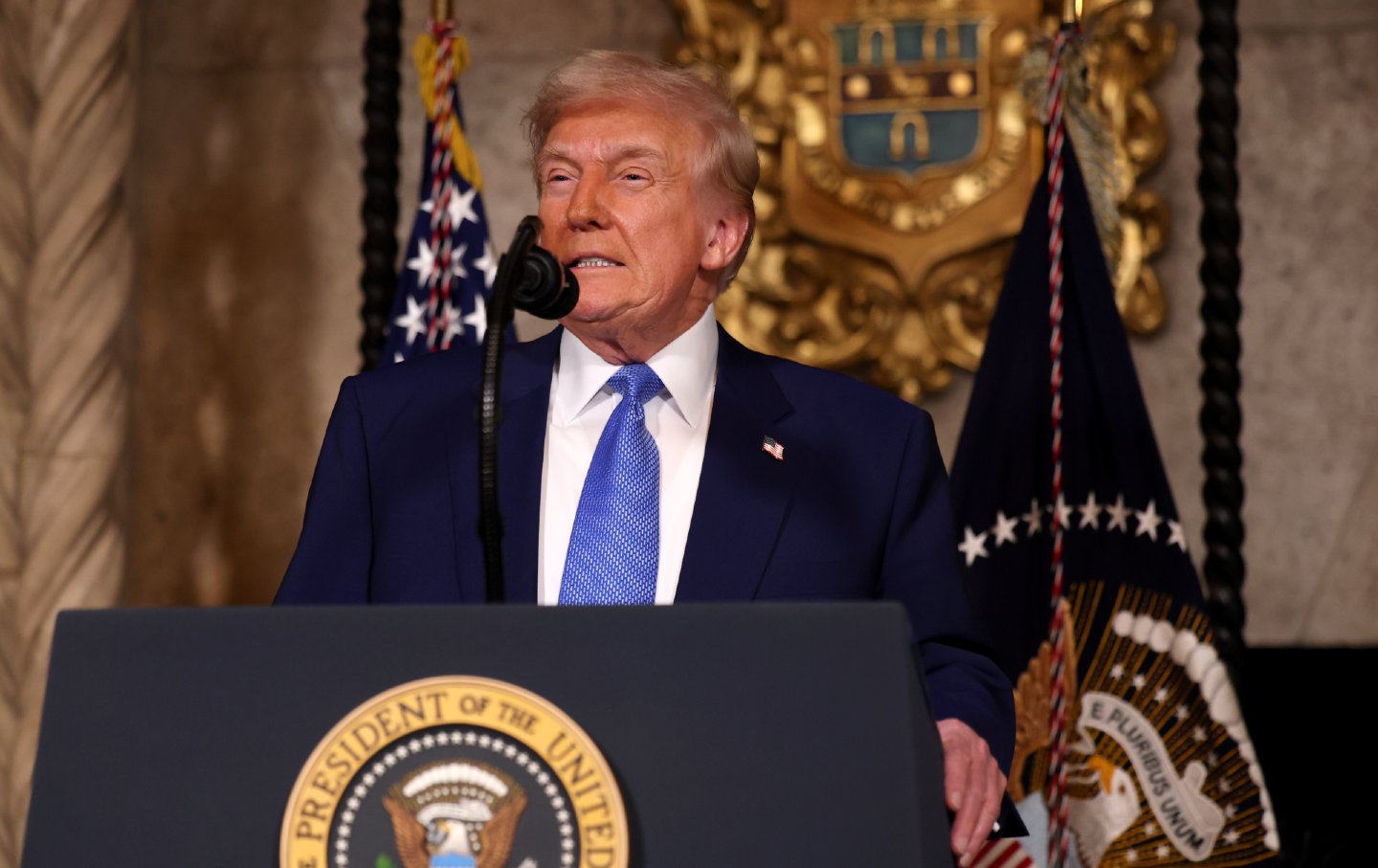
This Executive Order Reveals the Trump-Musk Endgame This Executive Order Reveals the Trump-Musk Endgame
A recent order aimed at destroying independent regulatory agencies isn’t just about taking control of the state—it’s a giant cash-grab in disguise.

Trump’s Plan Is to Flood the Zone With Garbage Trump’s Plan Is to Flood the Zone With Garbage
All of it is meant to disorient and overwhelm us. The question is: How are we to navigate all that excrement?
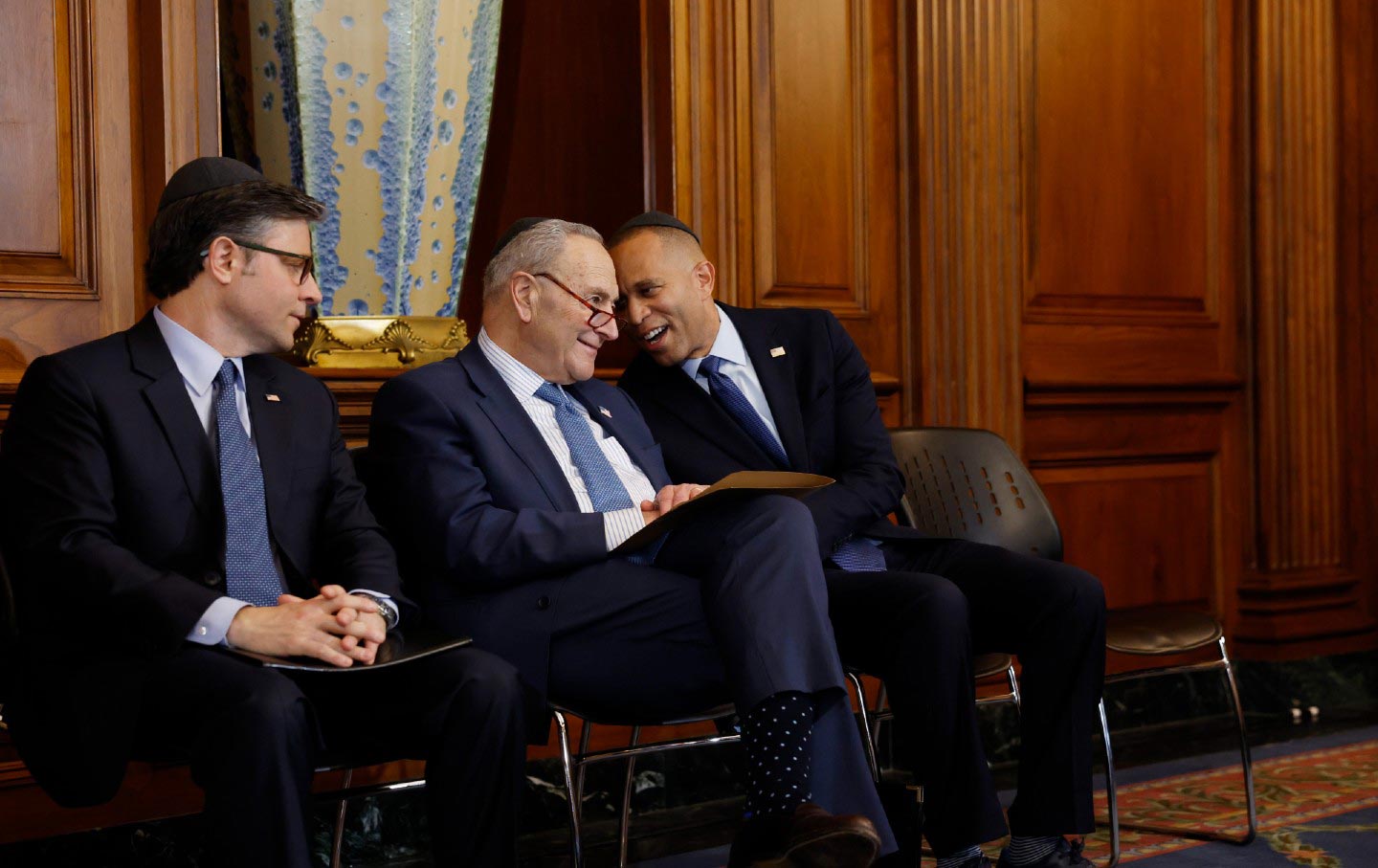
Trump Is Unpopular—and So Are the Do-Nothing Democrats Trump Is Unpopular—and So Are the Do-Nothing Democrats
The president is increasingly hated, but so is an opposition party that fails to oppose.
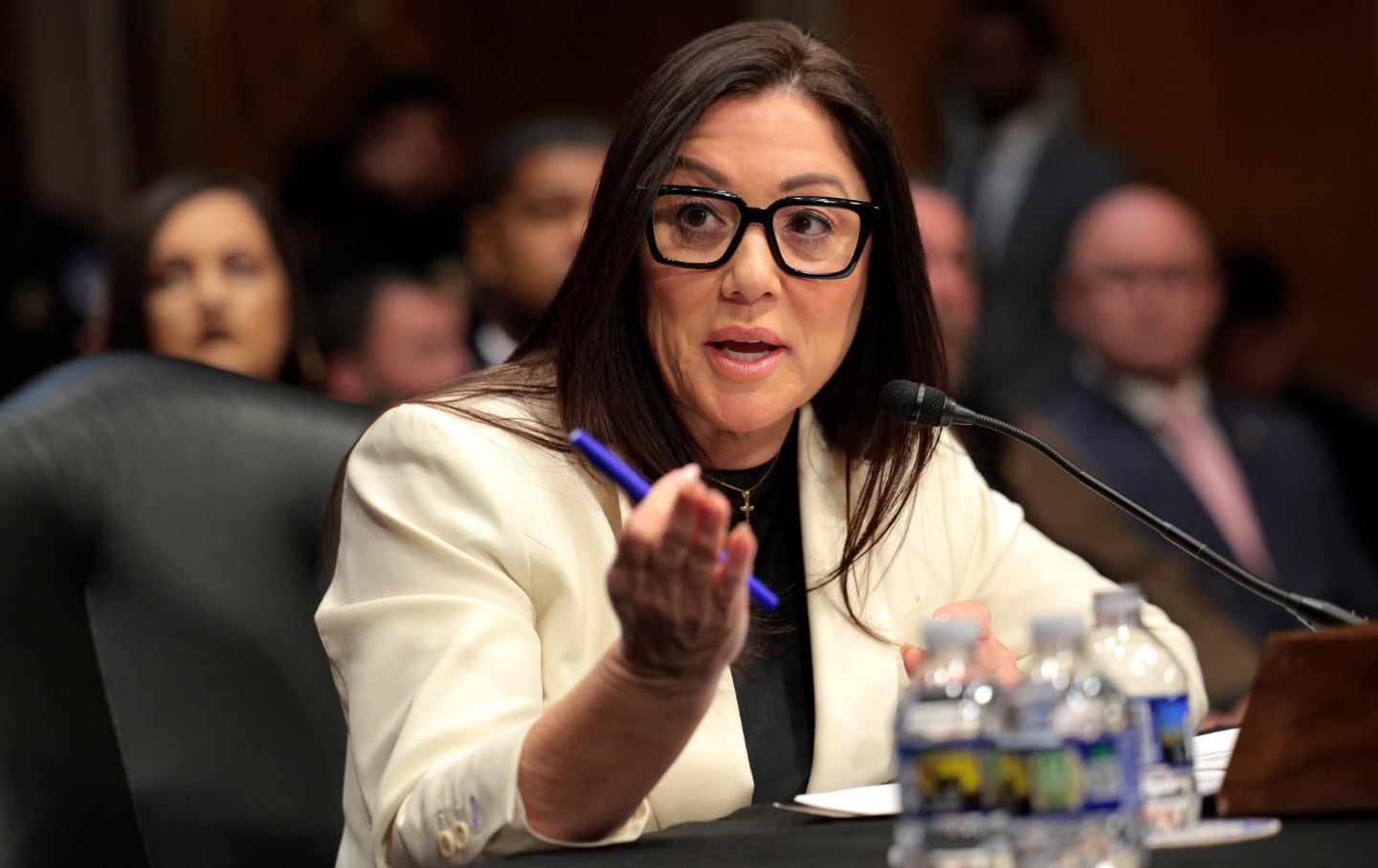
Trump’s Labor Secretary Pick Turns Out to Be Super Anti-Labor Trump’s Labor Secretary Pick Turns Out to Be Super Anti-Labor
Surprise, surprise: Former representative Lori Chavez-DeRemer supports anti-union “right to work” laws and rejects a national minimum-wage hike.

